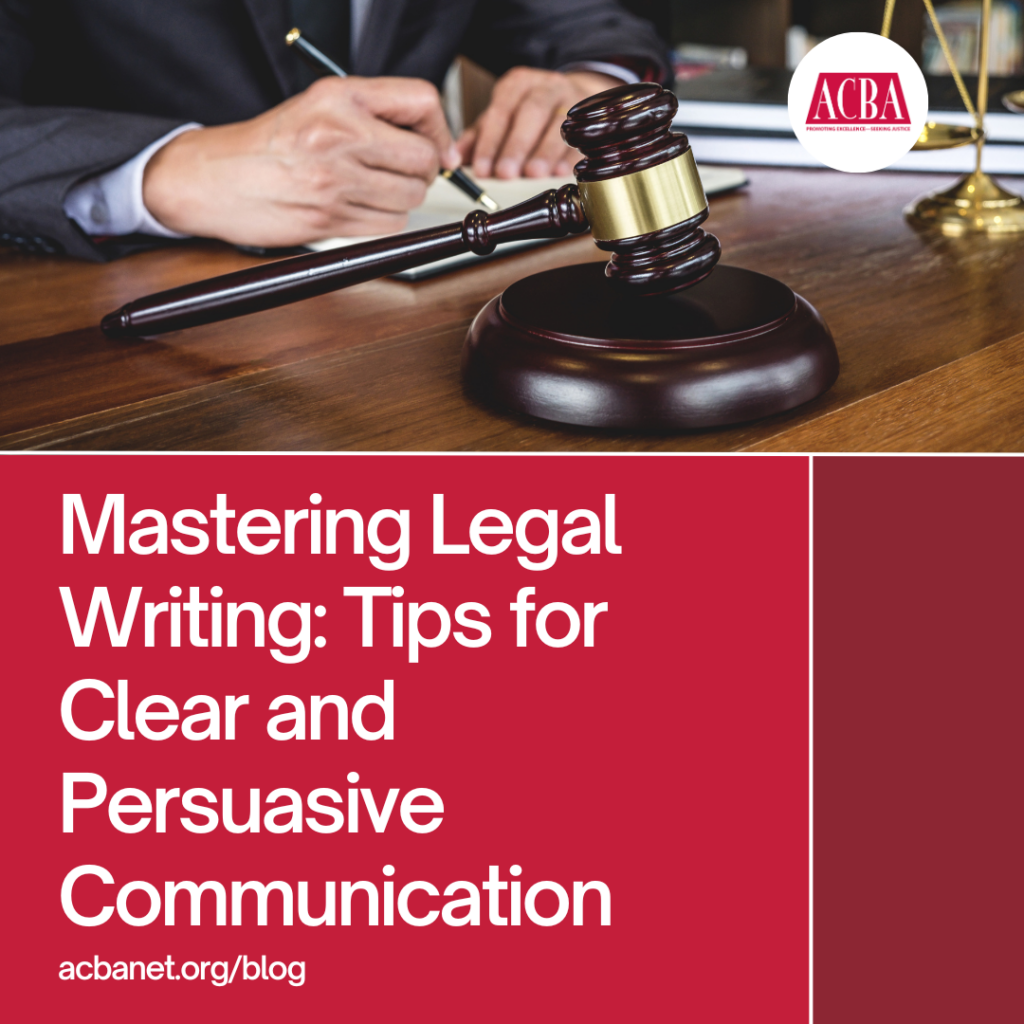How to Craft Compelling Legal Arguments
Legal writing is a fundamental skill for professionals in the legal field. Whether drafting contracts, memos, briefs, or other legal documents, clear and persuasive communication is essential to effectively advocate for clients and convey complex legal concepts. In this blog post, we will explore valuable tips to help you master the art of legal writing, ensuring your written work is concise, compelling, and easily understood.
- Know Your Audience: Understanding your audience is crucial. Consider who will be reading your document – whether it’s a judge, opposing counsel, or clients – and tailor your writing style and tone accordingly. Use language and terminology that are appropriate for your intended readership, striking a balance between legal precision and accessibility.
- Organize Your Thoughts: Effective organization is key to producing a well-structured and coherent legal document. Start by outlining your main points and arguments before diving into the writing process. Use headings, subheadings, and a logical progression of ideas to guide the reader through your document. Clear organization enhances readability and helps your audience grasp your arguments more easily.
- Be Clear and Concise: Legal writing should be clear, concise, and free of unnecessary jargon or complex language. Avoid lengthy sentences and paragraphs that can confuse or overwhelm readers. Instead, strive for clarity by using plain language and straightforward sentence structures. Break down complex ideas into manageable parts, and provide explanations or definitions where necessary.
- Use Precise and Appropriate Terminology: Legal writing relies on precise terminology to convey specific legal concepts accurately. Use terminology consistently and accurately throughout your document, ensuring your meaning is clear and unambiguous. Be mindful of legal terms of art and their proper usage within the context of your writing. However, balance technical language with the need for clarity and accessibility.
- Support Your Arguments: Persuasiveness is a crucial aspect of legal writing. When presenting arguments or making legal claims, provide sound reasoning, logical analysis, and supporting evidence. Cite relevant legal authorities, such as statutes, regulations, and case precedents, to bolster your arguments and demonstrate your understanding of the applicable law. Use persuasive language and rhetorical devices to engage and convince your readers.
- Edit and Proofread: Thorough editing and proofreading are essential to ensure the quality and professionalism of your legal writing. Review your document for clarity, coherence, grammar, spelling, and punctuation errors. Check for consistency in formatting, citation style, and numbering. Consider seeking a second pair of eyes or using proofreading tools to catch any mistakes you may have missed. Or use an online proofreader like Grammarly.
- Practice and Seek Feedback: Mastering legal writing is an ongoing process that requires practice and refinement. Continuously seek opportunities to write, such as drafting mock briefs or participating in legal writing workshops. Seek feedback from mentors, colleagues, or professors who can provide valuable insights and suggestions for improvement. Embrace feedback as an opportunity to grow and enhance your writing skills.
Mastering legal writing is crucial for effective communication in the legal profession. By understanding your audience, organizing your thoughts, being clear and concise, using precise terminology, supporting your arguments, editing and proofreading diligently, and seeking feedback, you can elevate your writing to new heights. Clear and persuasive writing not only enhances your credibility and professionalism but also allows you to advocate for your clients and effectively communicate complex legal concepts.
Join the Alameda County Bar Association today to access more resources!

